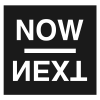The OKR framework, which stands for Objectives and Key Results, is a tool for setting and tracking goals. It is a simple but powerful tool that can help leaders to focus, set aspirational goals, commit to achieving them, and be transparent about their progress.
One of the key benefits of using the OKR framework is that it helps leaders to set clear and specific objectives that are aligned with the overall goals of the organization. For example, a leader at a software company might set the following objectives:
- Objective: Improve customer satisfaction
- Key Result: Increase customer satisfaction score by 10%
- Objective: Deploy new releases as easy as apple pie
- Key Result: Decrease critical hot fixes to 0
By focusing on a few key objectives, leaders can ensure that they and their teams are working towards the most important goals and not getting sidetracked by less important tasks.
Another benefit of OKR is that it encourages leaders to set aspirational goals. This means that they should aim to set goals that are challenging but achievable, pushing themselves and their teams to strive for excellence and reach their full potential. For example, a leader at a retail company might set the following objectives:
- Objective: Expand into new markets
- Key Result: Open 10 new stores in new markets
- Objective: Increase online sales
- Key Result: Increase online sales by 20%
In addition to setting aspirational goals, the OKR framework also encourages leaders to commit to achieving them. This means that they should be willing to put in the time and effort necessary to make progress towards their objectives, and should be prepared to adapt and change course if necessary. For example, a leader at a non-profit organization might set the following objectives:
- Objective: Improve the lives of disadvantaged children
- Key Result: Provide education and support to 500 children
- Objective: Increase funding
- Key Result: Raise $1 million in donations
Finally, the OKR framework promotes transparency, which means that leaders should be open and honest about their progress towards their objectives. This can help to create a culture of accountability, where everyone is responsible for achieving their goals and working towards the success of the organization. For example, a leader at a healthcare company might set the following objectives:
- Objective: Improve patient outcomes
- Key Result: Reduce patient readmission rates by 10%
- Objective: Increase efficiency
- Key Result: Reduce patient wait times by 20%
In conclusion, leaders should embrace the OKR framework because it helps them to focus on the most important goals, set aspirational objectives, commit to achieving them, and be transparent about their progress. This can help to drive the success of the organization and ensure that everyone is working towards the same goals.

0 Comments